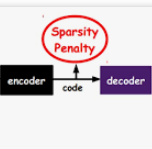Diffusion magnetic resonance imaging (dMRI) is an important tool in characterizing tissue microstructure based on biophysical models, which are complex and highly non-linear. Resolving microstructures with optimization techniques is prone to estimation errors and requires dense sampling in the q-space. Deep learning based approaches have been proposed to overcome these limitations. Motivated by the superior performance of the Transformer, in this work, we present a learning-based framework based on Transformer, namely, a Microstructure Estimation Transformer with Sparse Coding (METSC) for dMRI-based microstructure estimation with downsampled q-space data. To take advantage of the Transformer while addressing its limitation in large training data requirements, we explicitly introduce an inductive bias - model bias into the Transformer using a sparse coding technique to facilitate the training process. Thus, the METSC is composed with three stages, an embedding stage, a sparse representation stage, and a mapping stage. The embedding stage is a Transformer-based structure that encodes the signal to ensure the voxel is represented effectively. In the sparse representation stage, a dictionary is constructed by solving a sparse reconstruction problem that unfolds the Iterative Hard Thresholding (IHT) process. The mapping stage is essentially a decoder that computes the microstructural parameters from the output of the second stage, based on the weighted sum of normalized dictionary coefficients where the weights are also learned. We tested our framework on two dMRI models with downsampled q-space data, including the intravoxel incoherent motion (IVIM) model and the neurite orientation dispersion and density imaging (NODDI) model. The proposed method achieved up to 11.25 folds of acceleration in scan time and outperformed the other state-of-the-art learning-based methods.
翻译:磁共振成像( dMRI) 是基于生物物理模型, 复杂且高度非线性模型, 组织微观结构定性的一个重要工具。 用优化技术解决微结构, 容易估计错误, 需要在q- 空间进行密集取样。 已经提出了深层学习方法来克服这些局限性。 由变异器的优异性能驱动, 在这项工作中, 我们提出了一个基于变异器的学习框架, 即 微结构动动动动变动, 带有 Sprass Coding 的 Spreal Coding (MESC), 用于基于 dMRI 的微结构估算, 并使用下印的 q- 空间数据。 要利用变异的变形机, 我们的变异性变异性变异性变异性变异性变异性变异性变异性变异性变异性变异性变异性变异性变异性变异性变异性变异性变异性变异性变异性变异性变异性变异性变异性变异性变异性变异性变异性变异性变异性。 嵌变异性变异性变异性变异性变异性变异性变异性变异性变异性变异性变异性变异性变异性变异性变异性变异性变异性变异性变异性变异性变异性变异性变异性变异性变异性变异性变异性变异性变性变性变性变异性变异性变异性变异性变异性变异性变异性变性变异性变性变异性变异性变异性变异性变异性变异性变异性变异性变异性变异性变异性变异性变异性变异性变性变异性变异性变性变异性变性变性变异性变性变形, 变异性变异性变性变异性变异性变性变异性变异性变异性变性变性变性变异性变性变性变性变性变形变变形变异性变异性变异性变异性变异性变异性变异性




